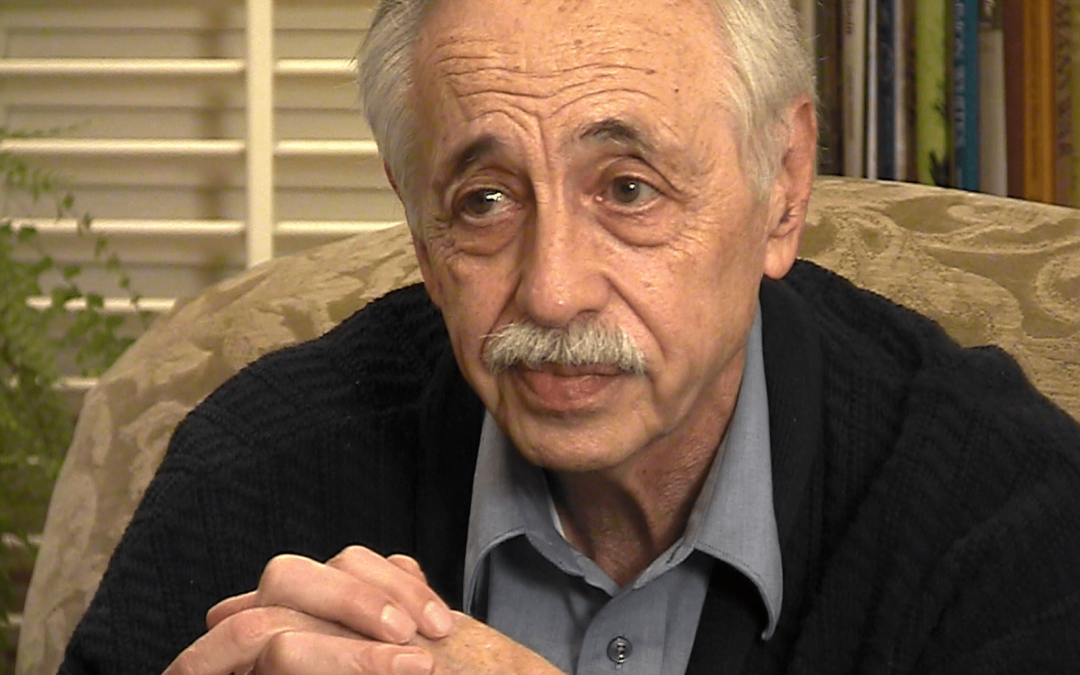Wayne Flynt is EthicsDaily.com’s pick as Baptist of the Year for 2011.
When most Alabama Baptists applauded the state’s adoption of the nation’s meanest anti-immigration law and many goodwill Baptists were publicly mute or morally muddled, Flynt spoke truth to power without flinching.
What he did wasn’t new. It’s what he has done on so many issues for so many decades – speaking with moral clarity and prophetic passion.
No wonder Wayne Flynt, retired Auburn University history professor and tireless prophet, is recognized by newspaper reporters and his own pastor as “the conscience of Alabama.”
“For nearly 40 years, Wayne has confronted the racism and accompanying poverty in Alabama with a courageous and informed passion,” wrote James Evans, pastor of Auburn First Baptist Church. “Having known Wayne for nearly 20 years, and serving as his pastor for the past seven years, I can say with some certainty that his concern for the plight of the poor is almost entirely informed by his faith.”
When asked about Alabama House Bill 56, Flynt responded, “This is the most mean-spirited, hateful thing I’ve ever read.”
The bill was sponsored by a Baptist state senator and signed by a Baptist governor, both members of churches that claim to read the Bible literally and belong to the predominantly white Alabama Baptist State Convention.
“If you read Matthew 25 beginning with verse 31, Jesus said, when you get to heaven, you won’t get in based on what you believe. Forget it. You will not get into heaven based solely on what you believe,” Flynt told a Mobile Press-Register columnist. “You will get into heaven based on how your beliefs transformed the ethical way in which you acted toward others.”
Pointing out that welcoming the stranger and feeding the hungry were at the heart of the Bible, Flynt said, “Is that what we’re doing in Alabama? No, of course not.”
Flynt said without blinking that undocumented immigrants do low-wage jobs that unemployed Alabamians would not do in the summer – like pick tomatoes.
When interviewed on NBC’s “Rock Center with Brian Williams,” he said, “Anti-immigration is probably as popular a political issue as you can find in Alabama.”
Historian Flynt noted, “I would remind you, however, that being against the federal government’s integration policies in 1963 was equally popular.”
When asked if he was “equating those two things,” the Sunday school teacher answered, “I am equating those two.”
He said: “This is just mean-spirited. This is finding the most vulnerable people within a society, people who can’t vote, most of them are women and children. They have no political power. And so in a sense, it’s like the blacks in 1963 who could not vote in Alabama.”
Flynt represents what it means to be a goodwill Baptist with moral clarity, especially compared to Alabama’s Baptist governor.
In his newly released autobiography, “Keeping the Faith,” Flynt traces his journey for justice through the state of Alabama.
While he has been nominated twice for Pulitzer Prizes, my first introduction to him was in his fascinating book, “Cracker Messiah: Governor Sidney J. Catts of Florida” (1977), about a Baptist preacher turned politician who was both anti-Catholic and a progressive who pushed for education and prison reform.
EthicsDaily.com has posted Flynt columns – here and here – and interviewed him for “Sacred Texts, Social Duty,” a documentary on taxation. He spoke at a Baptist Center for Ethics conference, “The Church’s Challenge on Health,” in 1993.
We recognize Wayne Flynt for speaking up about the mistreatment of undocumented immigrants in Alabama and for decades being an unflagging witness to power – power that harms the common good.
For a half-dozen years, we have made a surprise announcement at the end of the year about our Baptist of the Year.
Babs Baugh was EthicsDaily.com’s pick as Baptist of the Year for 2010. Baugh was recognized for her philanthropic leadership. Social justice, moral reformation and advancing the common good happen because moral individuals with generous means make them happen.
We named Emmanuel McCall in 2009 for his leadership on race relations. It recognized his lifetime commitment to redressing America’s “original sin.”
David Coffey was selected in 2008 for his leadership on interfaith dialogue between Baptists and Muslims. At great risk, he stepped out quickly when it mattered. His initiatives opened doors for advancing the common good.
Al Gore was named in 2007 for his leadership on the environment. Of course, he had already won a Noble Peace Prize and an Oscar. But he had not been recognized by goodwill Baptists for being a prophet without acceptance in his own country.
Lebanese Baptists were recognized in 2006 for their physical courage and spiritual grace witnessed in a withering war that displaced hundreds of thousands of civilians when Israel attacked southern Lebanon.
Paul Montacute was named in 2005 for being a global Good Samaritan who worked tirelessly and effectively through indigenous Baptist bodies to help those hammered by horrific natural disasters – tsunami, earthquake, hurricanes.
Our 2011 choice of Wayne Flynt is a sterling reminder that goodwill Baptists have a noble tradition of leaders who advance the common good with clarity and courage.
Robert Parham is executive editor of EthicsDaily.com and executive director of its parent organization, the Baptist Center for Ethics.


